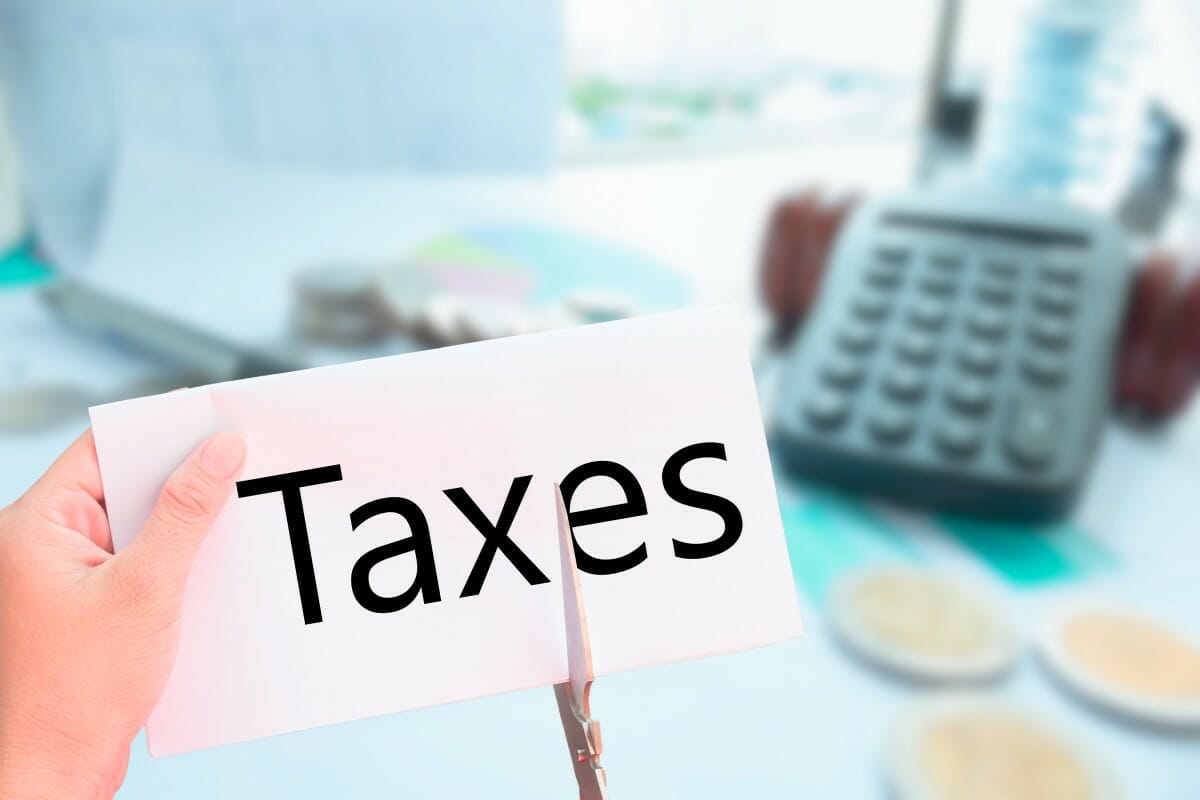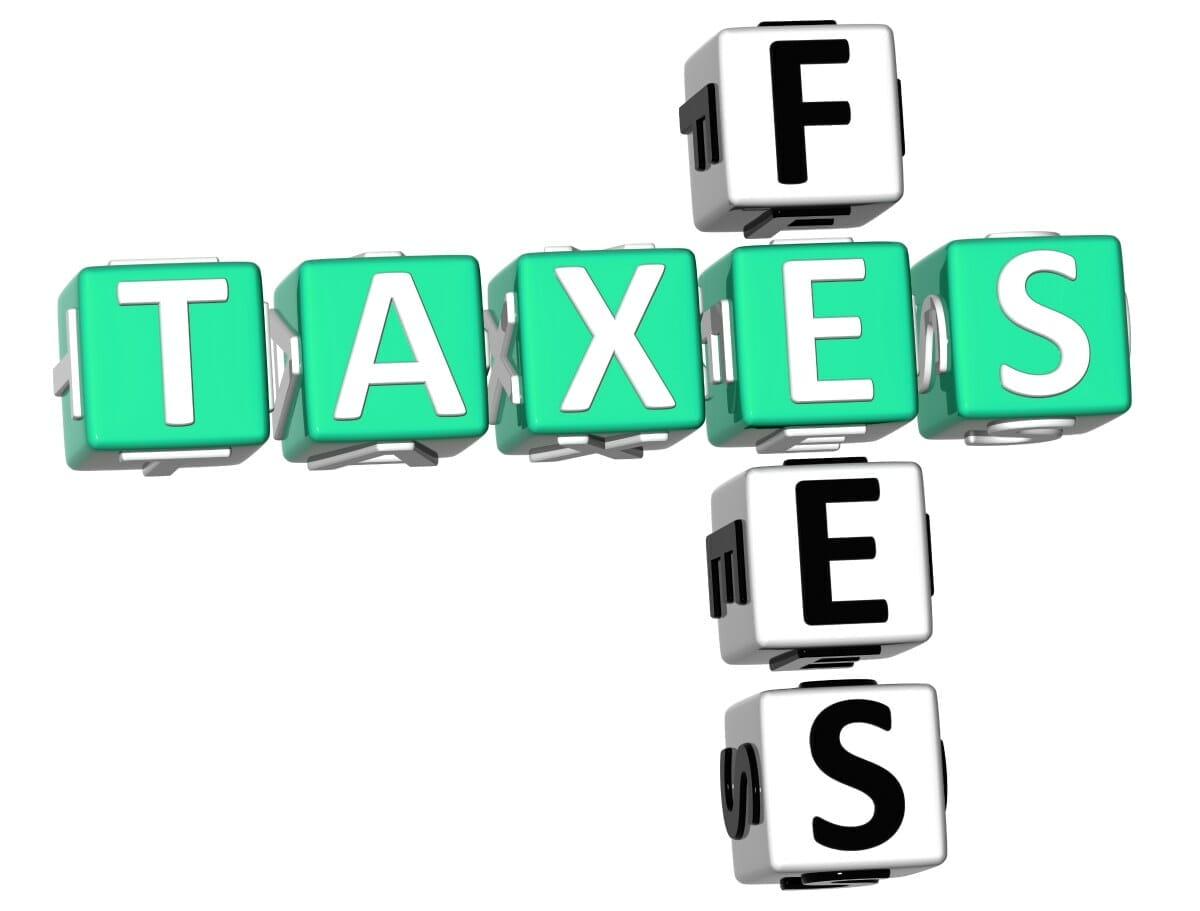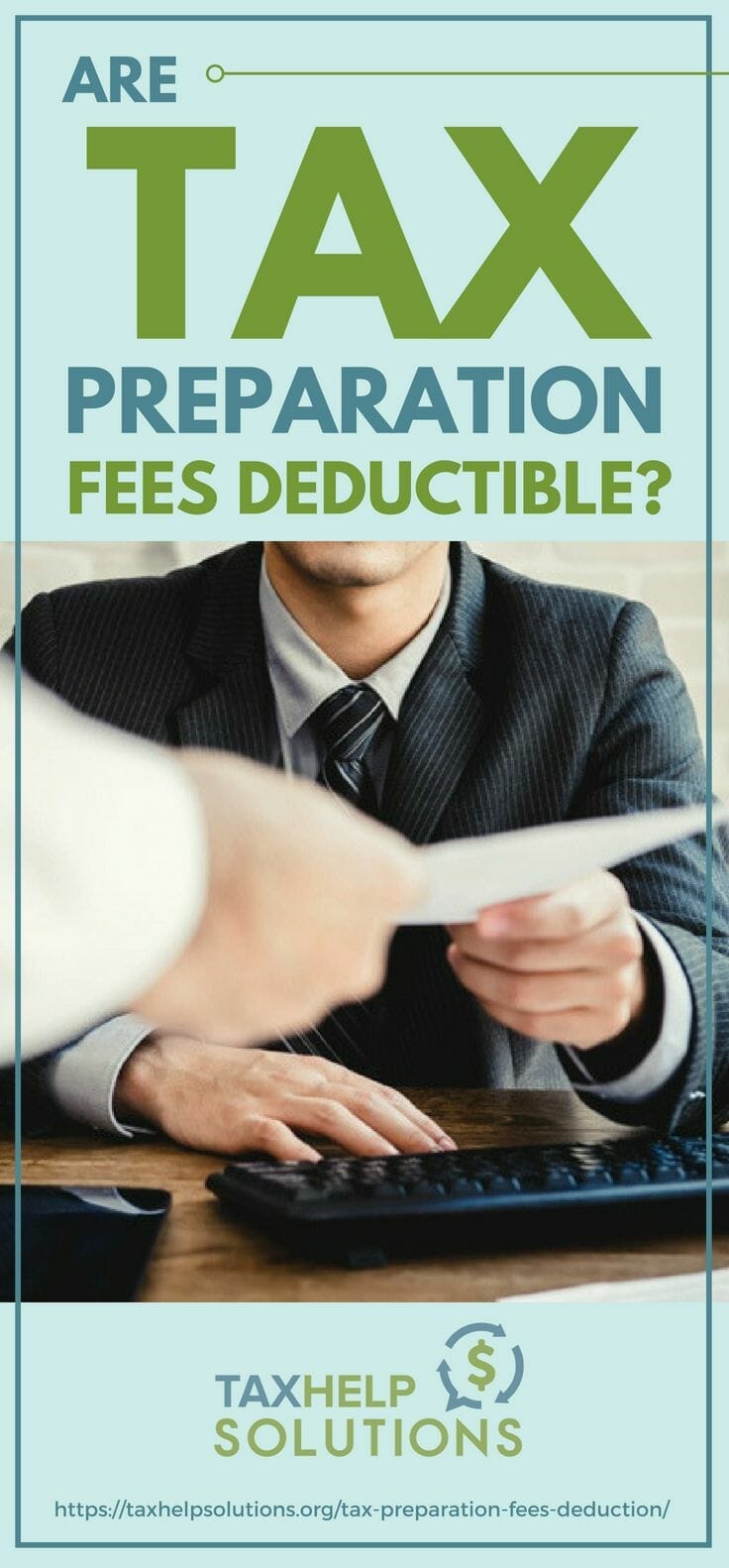Are tax preparation fees deductible? Fortunately, the answer is “yes” according to the Internal Revenue Services (IRS), and this can help taxpayers greatly.
RELATED: What Medical Expenses Are Tax Deductible? 10 Items To Deduct
In this article:
- What Are Tax Preparation Fees? A Short Primer and Definition
- Tax Preparation Fees Deduction: Some Useful Information
- Tax Preparation Fee: Deduction Limit
- Tax Preparation Fee Deduction and AGI Calculation
Are Tax Preparation Fees Deductible? | An Easy Guide
What Are Tax Preparation Fees? A Short Primer and Definition
Filing tax returns is incredibly important: missing or not filing taxes by the tax deadline can lead to penalties, most often the failure to file fee, which can balloon tax debts by 50%. Frequently missing or not filing tax returns can lead to audits, which may trigger additional penalties.
Some taxpayers miss the deadline due to lack of time or lack of knowledge. Some employ a tax advocate specialist for help while others make do with what they have.
However, not all taxpayers may need a specialist. As long as the taxpayer performs due diligence with their taxes, the IRS can help or even cancel out fees for deserving taxpayers.
Usually, only business owners and freelancers employ a professional, which means incurring fees for tax preparation in the process.
Most employees wait for the employer’s tax documents, which can save them time and resources for IRS tax preparation fees.
How can a self-employed taxpayer apply for this deduction in settling his dues to the federal government? Here’s everything you need to know to get your tax preparation fees deduction.
Aside from standard deductions, you can actually claim additional deductions when preparing your income tax reports. The tax preparation fee refers to expenses incurred from seeking professional help in preparing tax schedules.
They are often called legal or professional fees. The self-employed usually incur this cost, especially if they don’t want to compute tax payables manually.
These individuals pay this fee for the services of a hired expert (such as an accountant), or as payment for buying or subscribing to a software that does computations electronically.
And most of the time, this fee does not come cheap for self-employed taxpayers.
Tax Preparation Fees Deduction: Some Useful Information
There is actually a way to compensate for this additional cost for self-employed citizens. The Internal Revenue Services (IRS) actually allows self-employed taxpayers like businessmen to apply tax preparation fees deduction on their tax return.
This privilege covers tax preparation expenses such as professional fees for tax preparation or tax preparation software purchase or rental fees. Its coverage also extends to other tax preparations such as tax filing costs, CPA tax preparation fees, as well as other fees.
Popular tax software and websites also send an invoice on behalf of the taxpayer, but taxpayers should still keep or request invoices as proof. These tax return preparation fees usually come in digital form, which the taxpayer can print.
Tax professionals also send invoices, which makes gathering the CPA tax preparation fees and other tax preparation expenses easier to document and prove.
For those taxpayers who are interested in more in-depth discussion, the IRS Publication 529 can really help.
RELATED: Everything You Need To Know About Amended Tax Return
Tax Preparation Fees: Reporting Deduction
For the purpose of a tax deduction, self-employed taxpayers must declare any tax advice fees or any expenses paid to a tax preparer in Schedule A of either IRS Form 1040, or Form 1040NR.
The taxpayers should also declare this type of deduction in the following Form 1040 schedules:
- C or C-EZ for either profit or loss from businesses
- E for rentals or royalties
- F for farm income and expenses
A self-employed taxpayer can seek for tax preparation fees deduction on tax returns for the taxable year in which he pays it. For example, he can deduct tax preparation fees paid in 2017 on his 2016 tax return.
Again, most taxpayers have April 15, or the next business day after the 15th, as their tax deadline. Some businesses pay quarterly estimated taxes, which can mean higher tax return preparation fees due to the frequency of reporting.
The IRS might not want to see any retroactive application for deductible IRS tax preparation fees. By applying the deductible as early as possible, taxpayers decrease the chances of having reasonable tax preparation fees as deductibles.
Most often than not, tax professionals add the fees for tax preparation when they file the tax return for a client, with the client’s consent. However, as the usage of automatic tax preparation software grows higher, taxpayers may forget to keep records of the tax preparation fees.
Tax Preparation Fee: Deduction Limit
A taxpayer may not apply the tax preparation fee deduction all the time. The IRS subjects this type of tax deduction to a 2% limit rule.
Based on this limitation, a taxpayer may only claim the amount of tax preparation cost that is 2% greater than his adjusted gross income. To easily compute for the 2% limit, the taxpayer might have to check the adjusted gross income indicated on line 38 of Form 1040, or in line 37 of Form 1040NR.
AGI stands for adjusted gross income, and this figure affects not just the possible tax deductions, but also the final tax bracket and other deductibles.
Tax Preparation Fee Deduction and AGI Calculation
To ensure that the tax return preparation fees do not go over 2% of the AGI, the taxpayer must first calculate what their current AGI is.
To get the AGI and the maximum allowable fees for tax preparation deductible:
- Input all income that they earn in a year. These sources include salaries, dividends, interest and even distribution of income from retirement plans.
- Use all the deductions above the line, which means lines 23 to 35 in IRS Form 1040. Examples include: deductible contributions to retirement plans, student loan interest, expenses when moving due to military orders, loses from selling or exchanging properties, qualified medical expenses and even alimony.
- Multiply 2% to the result from the calculations above.
Basically, AGI is simply gross income minus federally approved adjustments to the gross income.
Lastly, find a good and reliable tax preparation specialist. Remember, not all accountants or even lawyers specialize in Federal Tax law, so always ask a professional first if they have experience or at least working knowledge in the field and are registered with the IRS.
Why is it important for the self-employed to answer the question “Are tax preparation fees deductible?” It is costly to ask for professional help in filing taxes, so deducting tax preparation fees can help compensate for this additional cost.
Tax preparation fees may actually help taxpayers, especially if they want a more convenient tax process. Knowing that reasonable tax preparation fees are tax-deductible is the icing on the proverbial cake, and taxpayers should take advantage of it, to lower their tax amount further.
Are you a self-employed taxpayer who has applied tax preparation fees deduction on any tax return? Let’s discuss your experience in the comments section below!
If you owe back taxes, visit taxreliefcenter.org for more information on tax relief options.
UP NEXT:
- How To Prepare For An IRS Audit
- Tips To Contact The IRS If You: Receive A Notice, Owe Back Taxes, Etc?
- Filing Tax Extension | A Complete Guide [INFOGRAPHIC]
Editor’s Note: This post was originally published on December 2017 and has been updated for quality and relevancy.





